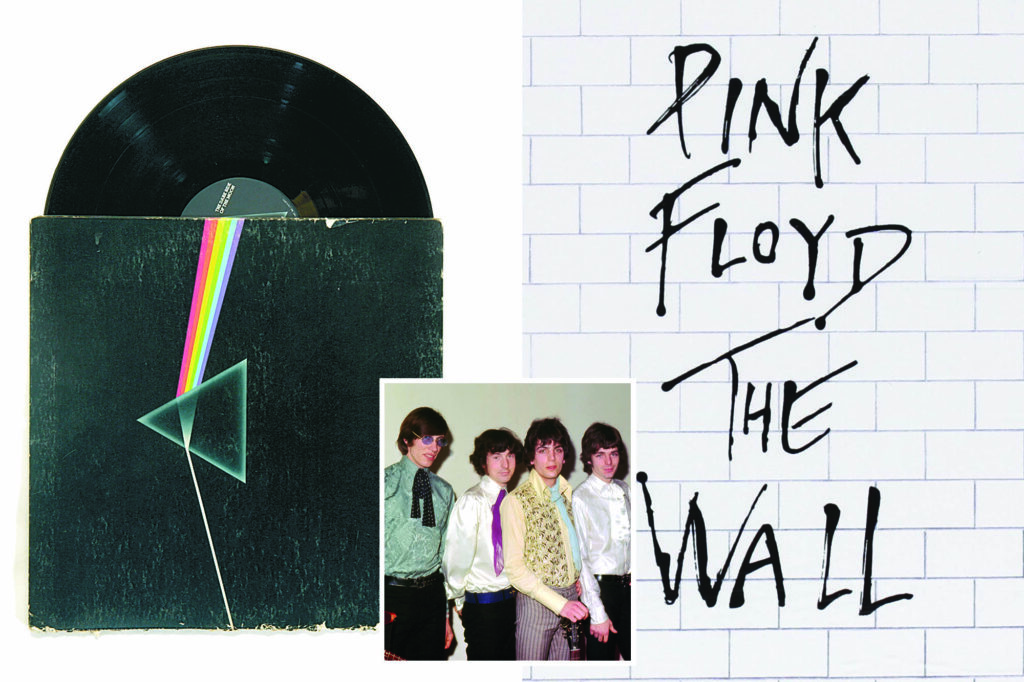As one of the most iconic and influential bands in rock history, Pink Floyd’s contribution to music has been monumental. From their early psychedelic sounds to the progressive rock anthems of the ’70s, they have created some of the most timeless and celebrated albums in history, including “The Dark Side of the Moon”, “Wish You Were Here”, and “The Wall”. Now, in what may become one of the largest music catalog sales in history, Sony Music is reportedly in talks to acquire the band’s music catalog for a staggering $500 million. This move comes amid an industry-wide scramble for valuable music rights, which has seen increasing interest from major labels and private equity firms alike.
Impression
Reports suggest that Sony Music is in the final stages of negotiations to purchase Pink Floyd’s music catalog, an agreement that could amount to $500 M. The catalog includes some of the most influential tracks in rock history, such as “Money,” “Comfortably Numb,” and “Another Brick in the Wall.” This deal, if concluded, would follow several other high-profile catalog acquisitions, including Bruce Springsteen’s sale of his catalog to Sony for around $500 million in 2021, and Bob Dylan’s sale to Universal Music for approximately $300 million.
The acquisition marks another milestone in Sony’s aggressive strategy to expand its music catalog portfolio. This approach has been driven in part by rising interest rates, which make revenue from music streaming and licensing rights more valuable to companies seeking steady cash flows. Pink Floyd’s music, with its enduring appeal across generations and genres, represents a potentially lucrative addition to Sony’s existing catalog.
While the deal has progressed, negotiations were delayed by tensions between the band members, specifically Roger Waters and David Gilmour, who have long had a contentious relationship. Their differences have impacted the decision-making process for the sale, but as of September 2024, discussions appear to be moving forward.
Why Pink Floyd’s Catalog Is So Valuable
The value of Pink Floyd’s catalog extends far beyond the monetary figure attached to it. The band has had a lasting impact on the music industry and continues to influence new generations of artists and fans. Albums like “The Dark Side of the Moon” and “The Wall” are not just commercial successes; they are cultural landmarks that have shaped the landscape of progressive rock and beyond.
“The Dark Side of the Moon”, for instance, spent an unprecedented 741 weeks on the Billboard 200 chart after its release in 1973 and is often cited as one of the greatest albums of all time. It explores themes of existentialism, mental illness, and human conflict, framed by innovative production techniques and groundbreaking use of sound engineering. The album’s influence on music, from rock to electronic, is profound. Songs like “Time” and “Us and Them” are still staples of classic rock radio, while “Money” is one of the most recognizable bass lines in rock history.
Meanwhile, “The Wall” (1979), with its introspective narrative about isolation and alienation, became a defining concept album of the 20th century. Its standout track, “Another Brick in the Wall (Part 2),” became an anthem for rebellious youth worldwide, underscoring the album’s themes of control, repression, and societal disconnect. The blend of storytelling and music in “The Wall” has influenced not only musicians but filmmakers, visual artists, and writers alike.
With a catalog so deeply ingrained in the cultural fabric, Pink Floyd’s music is not just an asset but a piece of intellectual property that continues to generate revenue through streaming, licensing, and various other forms of media. Their albums have been remastered and re-released multiple times, and the band’s influence can be heard in countless modern artists who draw inspiration from their experimental approach to sound and structure.
The Rise of Catalog Sales in the Music Industry
Pink Floyd’s potential sale comes during a wave of similar high-profile transactions. In the past few years, major artists have increasingly opted to sell the rights to their music catalogs. Along with Springsteen and Dylan, artists like Neil Young, Stevie Nicks, and Fleetwood Mac’s Lindsey Buckingham have all sold significant portions of their catalogs for sizable sums.
One of the driving forces behind these sales is the rise of music streaming, which has become the dominant form of music consumption. While physical album sales have dwindled, streaming has offered artists and labels a steady stream of revenue. This new model of income has made music catalogs more attractive to investors, particularly private equity firms and major labels that are looking for long-term financial stability.
Additionally, aging artists who are nearing retirement are finding it practical to sell their catalogs, securing a large payout that will support them and their estates. The catalog sales also relieve artists from the complexities of managing their music rights, leaving that responsibility to the buyers.
Sony, in particular, has been one of the most aggressive buyers in this market. With the backing of a $700 million investment from Apollo Global Management, Sony Music has been able to compete with other major labels like Universal and Warner Music Group for these lucrative deals.
Cultural and Business Experience
The acquisition of Pink Floyd’s catalog by Sony would be another defining moment in the evolving relationship between art and commerce. Pink Floyd’s music has always existed on the boundary between artistic integrity and commercial success. The band has maintained a unique position in rock history by refusing to conform to trends and pushing the boundaries of what was possible with rock music in the studio.
At the same time, the potential sale highlights the growing commercialization of music catalogs, raising questions about the long-term impact of such deals. While catalog sales offer artists significant financial rewards, they also transfer control of the music to corporate entities. This shift could influence how the music is used in future projects, whether in film soundtracks, commercials, or re-releases.
Despite these concerns, for a company like Sony, the acquisition of Pink Floyd’s catalog is a strategic move that secures its position as one of the leading forces in the global music industry. Sony’s portfolio of legendary artists continues to grow, giving it a competitive edge in the highly lucrative business of music streaming, licensing, and merchandising.
If the deal between Sony and Pink Floyd is finalized, it will mark a historic moment not just for the band but for the music industry as a whole. Pink Floyd’s catalog is a treasure trove of musical innovation, cultural significance, and artistic expression. Its value extends far beyond the financial figure attached to it, representing a legacy that continues to inspire and resonate with fans around the world. As the music industry shifts towards a model dominated by streaming and catalog sales, Pink Floyd’s music will undoubtedly remain a cornerstone of rock history, shaping future generations of listeners and creators alike.
No comments yet.








